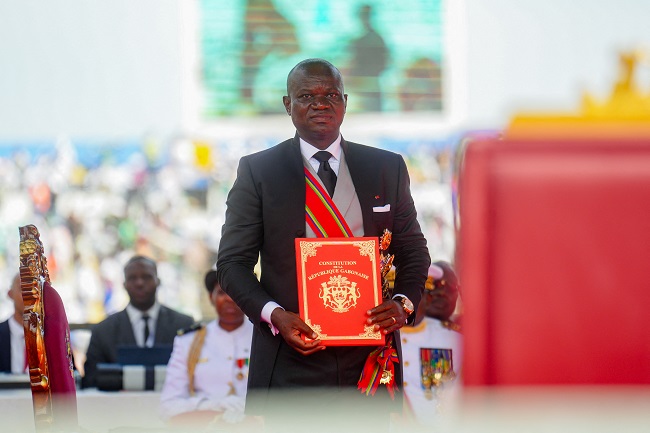
In a move set to reshape Gabon’s political landscape, President Brice Clotaire Oligui Nguema on Saturday officially launched his new political party, the Democratic Union of Builders (UDB), at a high-profile event in Libreville attended by more than 10,000 supporters.
Speaking at the Palais des Sports on July 5, President Oligui Nguema framed the UDB as a progressive force committed to inclusivity, development, and public well-being.
“We are not an electoral machine, but a movement in service of the people,” he declared in a 30-minute speech that marked a clear departure from the legacy of the Gabonese Democratic Party (PDG), which ruled for over five decades until its ousting in the 2023 coup.
The president emphasized that the UDB would adopt an internal primary system to select its candidates—a historic first in Gabonese politics.
“The UDB is not about seizing power, but transforming the nation,” he said, positioning the party as the vanguard of what he called a “new Gabon, worthy of envy.”
However, the promise of a new political chapter is already facing scrutiny.
Several prominent figures from the former PDG regime have been seen aligning themselves with the UDB, raising doubts among sections of the public—particularly youth—about whether this movement genuinely breaks with the past or simply rebrands old power structures.
The presence of familiar political faces has fueled accusations of continuity over reform. Critics warn that the party’s legitimacy will hinge not on rhetoric but on its ability to build trust and distance itself from the practices of the deposed regime.
With legislative and local elections looming in three months, pending approval by the Ministry of the Interior, the UDB is moving swiftly to present candidates and solidify its position.
Yet its true test lies in extending influence beyond military and institutional circles, and proving that it can meet the high expectations born from the post-Bongo era.
Whether the Democratic Union of Builders will serve as a genuine instrument of change or a strategic tool of political consolidation remains a question that only time—and voters—can answer.



